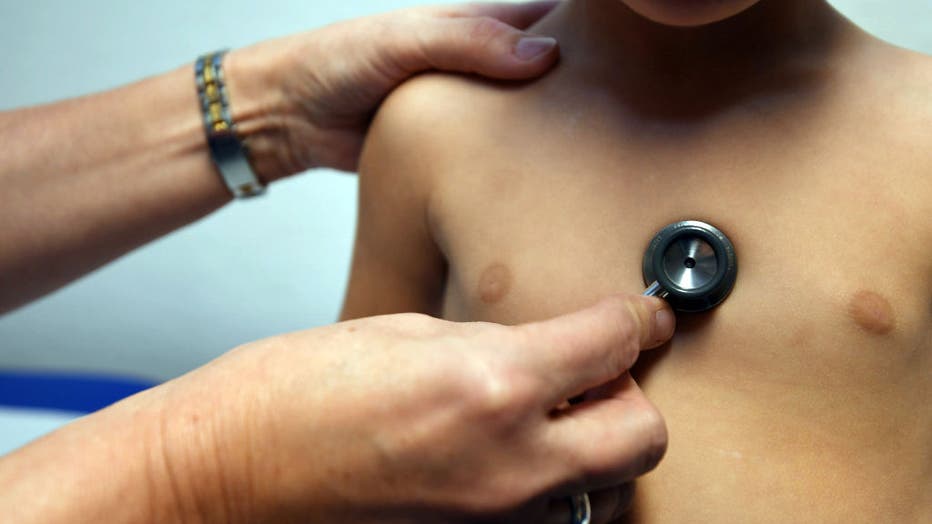All kids should be screened for potential heart-related issues, AAP says
WASHINGTON - All younger children and teenagers should be screened for conditions that can lead to cardiac arrest or death, regardless of their athletic status, according to a new recommendation from the American Academy of Pediatrics.
The new policy statement from the AAP, an organization made up of thousands of pediatricians nationwide, said the recommendation applies to youth athletes as well as less active children and teens. The screening is particularly important for kids entering middle school or junior high school, the AAP said.
The attention from pediatricians related to such screenings has generally focused on athletes in the past, the statement noted.
"We tended to focus on athletes in the past when parents brought their children and teens in for a sports physical, or preparticipation exam," said Dr. Christopher Erickson, a pediatric cardiologist in Omaha, Nebraska, and the lead author of the statement. "We know today that all children and teens benefit from a simple screening to help identify any potential problem that warrants follow-up with a cardiac specialist."

FILE - A pediatrician examines a child in a file image taken on Dec. 13, 2018. (Photo by Carmen Jaspersen/picture alliance via Getty Images)
Recently, 29-year-old Danish soccer star Christian Eriksen collapsed on the field after suffering cardiac arrest at the European Championship. The team’s doctor said Eriksen’s heart stopped and that "he was gone" before being resuscitated with a defibrillator. He has since been discharged from the hospital after being fitted with an implantable heart monitoring device that is meant to prevent similar incidents in the future.
Experts say a number of conditions can lead to potential heart-related issues and screening efforts should include all children, regardless if they play a sport or not.
An estimated 2,000 individuals younger than 25 die each year of sudden cardiac death in the U.S., excluding sudden infant deaths, according to the AAP. While autopsy studies show that most patients had structural heart anomalies, the causes for up to 40% of deaths remain unexplained.
The updated policy statement says the screening should include four questions that ask if a child or teen has ever fainted or had an unexplained seizure or experienced chest pain or shortness of breath, as well as if family members have a history of cardiac conditions or death before age 50.
"Ideally, this screening is incorporated into a child’s regular exam at least every two to three years," said Dr. Jack Salerno, an author of the statement. "The pediatrician is in an ideal position to check on a child’s development into the teenage years and is aware of family history that may raise a red flag for potential heart-related issues."
If there is a concern, the AAP also recommends an electrocardiogram should be the first test administered. It should be evaluated by a physician trained to recognize electrical heart disease. Pediatricians should also advocate for emergency action plans and CPR training within their communities, as well as the use of automated external defibrillators in cases of sudden cardiac arrest.
"No single screening strategy will detect every possible heart issue, and so it’s important that we raise awareness and education not only in pediatric offices but within the community," Erickson said. "We encourage parents and pediatricians to be alert for any concerning signs or family history."
It updates the AAP’s 2012 guidelines and was published on June 21 online in the journal Pediatrics.
This story was reported from Cincinnati.


